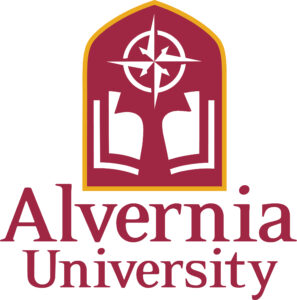Sharpen Your Program Focus with Regional Data
Uncover Hidden Insights to Drive Enrollment and Success

This webinar dives deep into the power of regional data for academic program evaluation and management.
Prioritize programs: Go beyond national trends and identify the programs with the most potential in your specific geographic area.
Make data-informed decisions: Gain a clearer picture of program lifecycles using regional enrollment patterns, competition landscape, and job market data.
Optimize program offerings: Tailor your programs to meet the unique needs and interests of students in your region, maximizing relevance and enrollment success.
Join us and discover:
- The critical advantages of using regional data for program evaluation.
- How to leverage regional data to prioritize programs for growth.
- Real-world strategies for optimizing program offerings based on regional insights.
- Best practices for integrating regional data into your program lifecycle management.
Don’t miss this opportunity to gain a competitive edge and ensure your academic programs remain relevant and thriving in your region!
June 12, 2-3 pm ET


Kahanov has over 25 years of higher education experience as a provost, dean and professor. She has extensive experience in academic affairs, institutional strategic planning, accreditation, developing academic programs, revising general education essential learning outcomes and creating faculty mentorship programs. Kahanov has served as Provost and Senior Vice President for Academic Affairs and the Chief Academic Officer for Alvernia University. Prior to Alvernia, Kahanov served as the Provost and Vice President for Academic Affairs at Stockton University and SUNY Oneonta.
Prior to her time at Oneonta, she served as Dean of the College of Health Sciences and Education at Misericordia University, Assistant Dean for Interprofessional Education and Practice at Indiana State University, and Chair of the Department of Applied Medicine and Rehabilitation at Indiana State University. Professionally she has served as an Athletic Trainer for several institutions and the Olympic Games. In addition to these roles, she has held faculty appointments at each institution mentioned.
Her academic credentials include 92 peer-reviewed publications, 120 peer-reviewed presentations and a textbook entitled “Athletic Training and Therapy: Foundations of Behavior and Practice.” She earned her bachelor’s degree in exercise science and athletic training from Indiana University; her Master of Science in Exercise and Sports Sciences from the University of Arizona; and her Doctorate in Education, Curriculum and Instruction from the University of San Francisco. She also completed the Institute for Management and Leadership in Education at Harvard University.
Sign Up to Gain Free Access to Gray DI's 2024 Regional Insights Webinar
- June 12, 2024
- 2 PM - 3 PM ET
- Webinar
Reads to Get You Ready

The Fiscal Fitness Formula for Colleges: Enrollment, Efficiency, and Margin Growth
Fiscal fitness isn’t just about balancing budgets—it’s about ensuring long-term sustainability and student success. With enrollment growth rebounding and greater opportunities to improve efficiency, institutions have a prime opportunity to strengthen their financial health. Targeted enrollment strategies, smarter resource allocation, and academic efficiencies can drive operating margins without resorting to program cuts. Now is the time to rethink investments in marketing, retention, and faculty workloads to build a stronger, more resilient institution.

Higher Education’s Hottest New Program Announcements: What Trended in 2024
Explore the innovative programs colleges and universities are offering in 2024 to meet shifting student interests and workforce demands. From advancements in healthcare and technology to addressing critical societal needs, institutions are expanding their offerings in areas like Artificial Intelligence, Public Health, and Environmental Science. Discover the most notable new programs that are equipping learners with the skills to thrive in a rapidly changing world—and see what’s next on the horizon for higher education.

Gray DI’s Winning Formula: Identifying the Next Big Academic Program Trends
Explore how emerging academic programs are shaping the future of education, as Gray DI reflects on past predictions and their impact. From the transformative rise of Applied AI and the Creator Economy to the evolving fields of Disinformation Intelligence, Space Commercialization, and Cellular Agriculture, this exploration highlights successes, challenges, and unexpected shifts. Gain insights into how institutions can adapt to innovation, embrace new opportunities, and position themselves at the forefront of change in a dynamic educational landscape.

Stop Cutting Programs: A Smarter Approach to Cost Reduction in Higher Education
Facing financial challenges? You’re not alone. Many institutions are struggling to increase revenue and reduce costs, and traditional cost-cutting measures like program cuts often do more harm than good. These cuts fail to consider the complex web of revenue generators and resources within an institution. By gaining a deep understanding of program economics, colleges and universities can identify hidden opportunities for growth, optimize faculty workload, and make strategic adjustments that ensure long-term financial sustainability.

Trending Now: Creator Economy College Programs Are Growing
The creator economy, projected to skyrocket to $78.91 billion by 2031, is transforming career opportunities, and higher education is rising to meet the moment. From degrees in digital media influence to certificates in influencer marketing, colleges are crafting programs that blend creativity with cutting-edge skills like AI, marketing, and content creation. As influencers redefine modern celebrity and employers prioritize social media expertise, these programs are shaping the next generation of industry leaders in a dynamic and ever-evolving field.

Unlocking Collaboration: Why Data Literacy is Key to Strategic Program Planning in Higher Education
In a world full of data, higher education institutions must turn information into meaningful decisions. Data literacy among leaders is key to moving beyond subjective opinions and creating evidence-based strategies for academic program planning. Equipping stakeholders to analyze, interpret, and communicate data, fostering transparency, and cultivating a data-informed culture enable smarter decisions, enhanced collaboration, and sustainable growth. Discover how data literacy transforms program evaluation into a strategic advantage that meets student needs and adapts to changing demands.
Have questions or just want to connect? Reach out to info@www.graydi.us/
